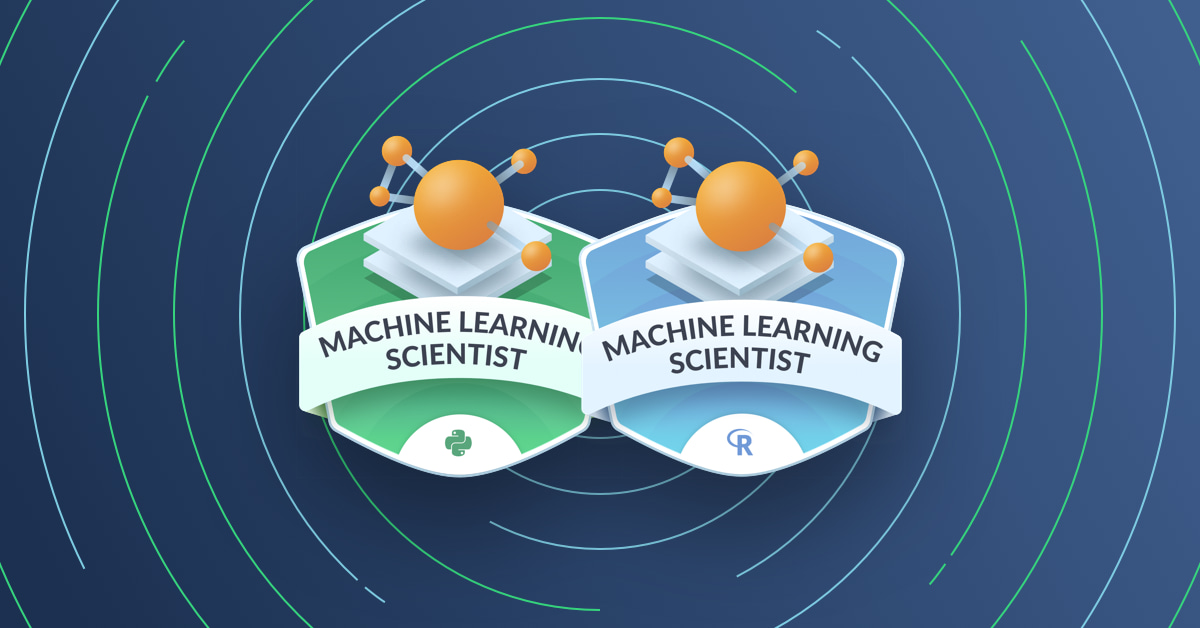

What is machine learning?
Machine learning (ML) is a set of tools that facilitate making predictions and decisions from data. Supervised learning claims the lion's share of ML and allows us to generalize patterns from previous data to new data. In other words, it applies prior data with known values to make predictions when we don't know the value of what we want to predict. In its application across business problems, machine learning is also referred to as predictive analytics, and use cases include customer churn, credit card fraud, and email spam.
ML tasks are learned through available data that were observed through experiences or instructions, which in turn result in better learning. The ultimate goal is to improve the learning in such a way that it becomes automatic without the need for human intervention.
“Machine learning is the science and art of giving computers the ability to learn to make decisions from data without being explicitly programmed.”—Dr. Hugo Bowne-Anderson, Data Scientist and Educator at DataCamp
Why machine learning is important for businesses
A 2018 study by O’Reilly found that 51% of organizations are already using ML, with 36% claiming to be early ML adopters and 15% claiming to be sophisticated users. A slight minority of 49% of organizations reported they were exploring or “just looking” into deploying ML.
Learn from your data to conduct business better
The growing need to extract insights from data
Almost every business has a ton of data, from payment transactions to customer information to employee data, that could (and should) be leveraged strategically. Leading companies today are incorporating ML into their day-to-day processes, from driving growth and optimizing efficiencies to identifying areas for capital savings and reducing investment costs.
Machine learning provides a path to faster decisions
Decision-makers need access to critical data faster than ever before, and ML supports fast, informed, and accurate decisions. A key benefit of ML is the ability to make faster educated decisions, and 50% of companies who’ve implemented ML felt they had achieved that goal.
Why managers need basic machine learning fluency
Managers should understand the basic terminology and concepts in machine learning. To have productive conversations with data scientists, they must understand what ML is, what it can do, and what to watch out for when using it.
Machine learning fluency enables managers to ask the right questions, and to know which problems can and can’t be solved by ML. They must also be able to speak with vendors of data services and products to build a successful data ecosystem.
How machine learning can solve business problems
Here are a few practical examples of how machine learning can solve business problems, plus links to DataCamp courses to build these ML skills.
Predicting customer churn
Machine learning can help companies understand the different costs for acquiring versus retaining existing customers, and how to calculate customer lifetime value, which is the average revenue that a customer generates before they churn.
Personalizing products for customers
Companies looking to better understand and serve their customers’ various habits and needs can use ML for customer segmentation and personalization.
Processing and analyzing large amounts of data
Machine learning for natural language processing has wide-ranging implications and can give human-to-machine interactions a personal touch. It’s what drives AI-powered chatbots. Businesses can also derive actionable insights from unstructured data with text mining and image processing and recognition. Applications range from spam detection to building recommendation systems, and much more.
Conducting financial analysis
The finance industry uses deep learning for everything from classifying fraudulent activity to algorithmic trading and portfolio management, to loan underwriting and much more.
Machine learning is being widely adopted by the financial industry. Two Sigma, a hedge fund, uses it to inform trading strategies. And one of our insurance clients is championing machine learning courses on DataCamp to drive their data modernization initiatives.
Building better tech products and services
The tech industry uses ML to build products and services. They consult with clients to offer marketing personalization, recommendation engines, text translation, chatbots, and more.
Applying AI and ML in healthcare
The healthcare industry is evolving to incorporate ML in medical imaging and diagnosis, data collection, drug discovery, and much more.
The growing demand for machine learning scientists
So, how much has the ML field grown? International Data Corporation forecasts that spending on AI and ML will grow from \$12B in 2017 to \$57.6B by 2021. Deloitte Global predicts the number of machine learning pilots and implementations will double in 2018 compared to 2017, and double again by 2020.
Because so many organizations are investing in predictive analytics, it makes sense that there’s a huge demand for ML scientists. And the more mature an organization is in implementing ML and AI, the more roles they open up. Demand for ML scientists is increasing and will likely continue to be high for the foreseeable future.
Upskill your team with our machine learning tracks


For additional reading, check out our machine learning tutorials in Python and R.

